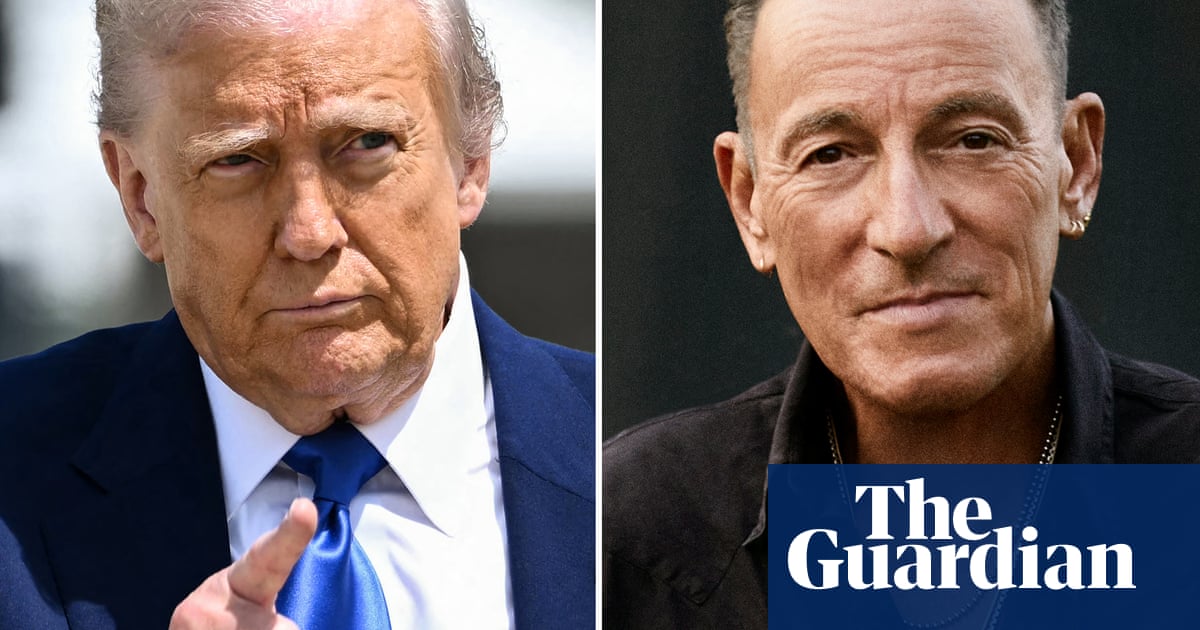When music meets politics,teh stage is set for powerful reactions,as seen in recent exchanges involving artists like Bruce Springsteen and donald Trump. This article explores the complex intersection of music, politics, and public opinion, examining how artists’ activism and celebrity endorsements shape cultural narratives. Discover how social media amplifies these voices and what the increasing politicization of music means for artists and audiences alike.
The Intersection of Music, Politics, and Public Opinion: A Look Ahead
Table of Contents
The recent exchange between Bruce Springsteen and Donald Trump, along with Trump’s comments on Taylor Swift, highlights a growing trend: the increasing entanglement of music, politics, and public perception. This isn’t new, but the intensity and speed at wich thes interactions play out are evolving, shaping cultural narratives and influencing public discourse in unprecedented ways.
The Artist as Activist: A Continuing Trend
Springsteen’s outspoken criticism of Trump, echoing sentiments from his tour kickoff [[2]], is part of a long tradition of musicians using their platform to address political issues. This trend is likely to continue, with artists feeling a greater obligation to speak out on social and political matters. We can expect more musicians to leverage their influence to advocate for causes they believe in,from human rights to environmental protection.
Pro Tip: Artists can amplify their message by collaborating with advocacy groups and using social media to engage directly with their audience, fostering a sense of community and shared purpose.
The Power of Celebrity Endorsements and Backlash
Trump’s reaction to Springsteen and Swift underscores the power of celebrity endorsements and the potential for backlash. While endorsements can boost a candidate’s profile, they can also alienate segments of the population. This dynamic is amplified in today’s polarized political climate, where any perceived alignment with a particular ideology can trigger strong reactions.
Did you know? Studies show that celebrity endorsements can significantly impact voter turnout, especially among younger demographics. However, the impact varies depending on the celebrity’s popularity and the political context.
Social media platforms like Truth Social, where Trump voiced his opinions, play a crucial role in this evolving landscape. They provide direct channels for public figures to communicate with their audience, bypassing traditional media outlets. This direct access can lead to unfiltered commentary and rapid-fire responses, as seen in the exchanges between Trump and the musicians.
Reader Question: How can we ensure that social media platforms are used responsibly in political discourse, preventing the spread of misinformation and promoting constructive dialogue?
The Future of Music and Political Engagement
Looking ahead, we can anticipate several key trends:
- Increased Politicization of Music: Expect more artists to incorporate political themes into their work, reflecting the social and political realities of their time.
- Rise of “Cancel Culture” and its Impact: Artists will need to navigate the complexities of public opinion, understanding that their words and actions can have significant consequences.
- The Role of Streaming Services: Streaming platforms will likely play a more active role in curating and promoting politically charged content, possibly influencing the narratives that reach a wider audience.
For artists, navigating this new landscape requires careful consideration. They must be prepared for both praise and criticism,understanding that their words and actions can have far-reaching consequences. For the public, it’s essential to critically evaluate the details they consume, recognizing the potential biases and motivations of those involved.
The evolving relationship between music, politics, and public opinion is a dynamic and complex phenomenon. By understanding these trends, we can better navigate the challenges and opportunities that lie ahead.
call to Action: Share your thoughts on the role of musicians in politics in the comments below. What do you think the future holds for this intersection of art and activism?

